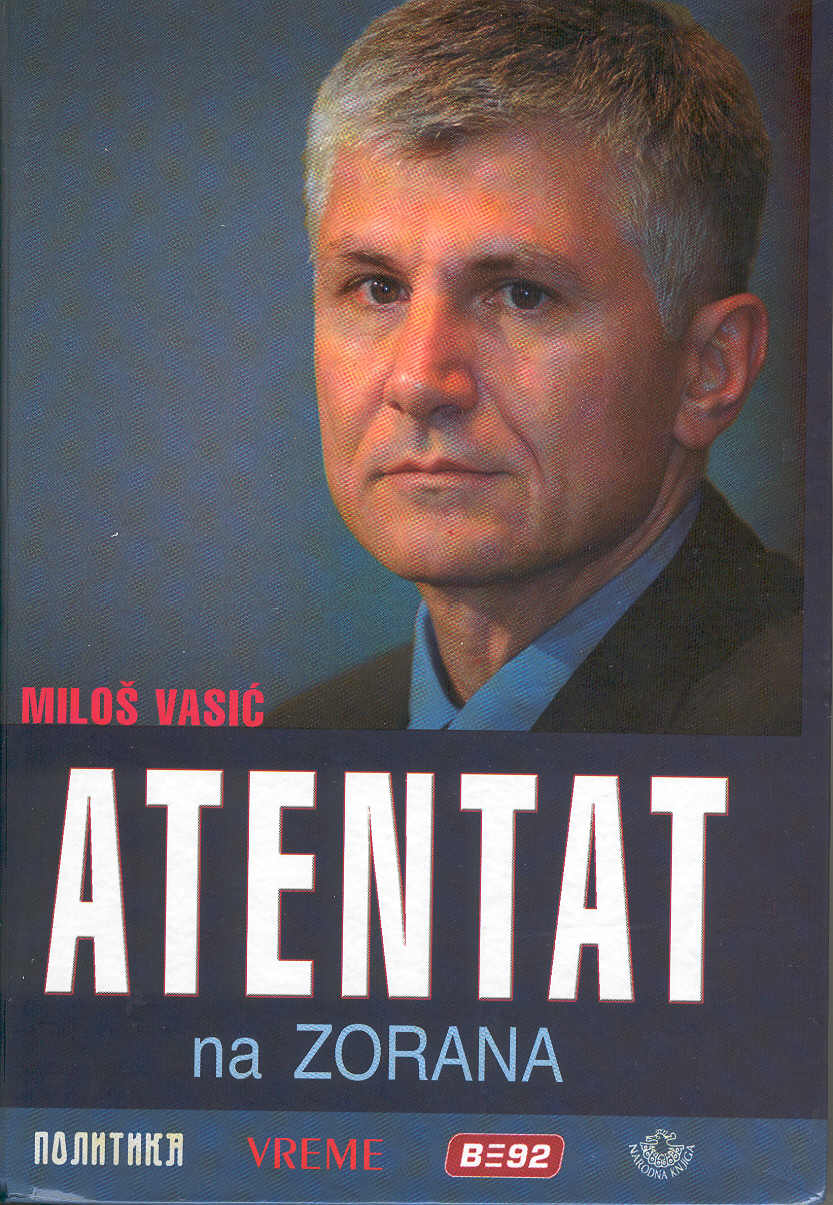 |
Prince Miloš’s script
by Mirko Ðordevic
 Books follow one another, the trial continues, witnesses testify - and nothing. No one in Serbia knows who killed the reforming prime minister Zoran Đinđić. All who continue to hope that something will be revealed came to the Sava Centre [for the book launch], but the government, the army and the church were notably absent. Books follow one another, the trial continues, witnesses testify - and nothing. No one in Serbia knows who killed the reforming prime minister Zoran Đinđić. All who continue to hope that something will be revealed came to the Sava Centre [for the book launch], but the government, the army and the church were notably absent.
Thick books have been written - one recommended by Nikola Milošević, a member of the Serbian Academy - to prove two things. The first is that the deceased was a Machiavelli. The old academician seems to have read the famous Florentine’s Prince rather superficially. If Đinđić had been a follower of Machiavelli, he would not have been so easily eliminated. The other is that Đinđić was killed by his own side. No proof has been offered for this thesis either. Maybe we should not be surprised that no one knows who killed Đinđić. We still do not know much about Milošević’s decade or the reality hidden beneath what Belgrade calls ‘the masked cassocks’.
That every political opponent is in fact an enemy to be killed, and that all witnesses to the crime should be removed too, is not a new practice but a recognisable part of our tradition. As it happens, Đinđić’s murder occurred on the anniversary of the May 1903 coup [when army officers murdered the Serbian king and his wife]. A letter by Prince Miloš from 1817 has been preserved which helps us to understand it all. When it comes to the ‘perfect crime’, the prince set a high standard. The Radicals tried to go one better at the end of the 19th century, as Ranković’s secret policemen did later, but Prince Miloš remains unsurpassed. On 3 June 1817 he wrote to his trusted ‘personnel officer’ German about how he had crushed the opposition. The prince writes openly, hiding nothing, knowing that it will be passed on to his esteemed heirs, and ends the letter with a clear message: ‘I have destroyed all opposing parties.’
It is the same today in Serbia. No one knows how and why, but all know that Stambolić and Đinđić were murdered. Miloš Vasić’s latest book The Assassination of Zoran does not give a direct answer to all questions, nor does the journalist’s honest toil make any such promise. But Vasić has studied and marvellously presented a criminal network that functions perfectly. Two loci are clearly visible within it: the Zemun clan and the JSO [Red Berets].
If one were to say that Đinđić was killed by ‘Koštunica and the Russians’, that would make a great tabloid headline but proof would be needed. Neither the Russians nor Koštunica liked Đinđić, just as he was not liked by the Serb Orthodox Church - for which he did more than most of his predecessors. But this does not mean that we have proof as to the identity of his killer. Vasić has scrupulously followed this rule, which is what makes his book so valuable. Writers and academicians, legalists and ‘Legija-lists’, and the followers of a certain ‘community’ about which no one knows anything, are carefully filtered through his mesh. One needs only one scene, which Vasić brilliantly paints, to reveal how densely and of what various materials the mesh has been woven. Thus Ulemek-Legija curses a waiter in Đinđić’s presence for offering him meat during Lent. Evidently we are dealing with people who refuse meat, but readily drink blood. Another detail is even more typical. Vasić has reproduced almost all of Legija’s famous open letter to the public. But which writer or famous academy member has not written to the Serb people, using practically the same words? And in the courtroom in The Hague Milošević called Đinđić’s government a ‘Quisling government’. This was a signal to the clan and the network moved into action.
Vasić offers a wealth of material suggesting that the perpetrators were a mafia clan and the JSO. The reply to the question: ‘Who actually killed Zoran Đinđić?’ should be answered by the court, i.e. by Serbia, which with this assassination has once again taken the path leading into the wilderness.
This comment on Miloš Vasić’s Atentat na Zorana [The Assassination of Zoran] has been translated from Monitor (Podgorica), 18 March 2005
|